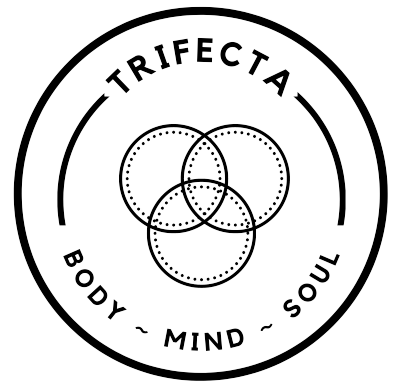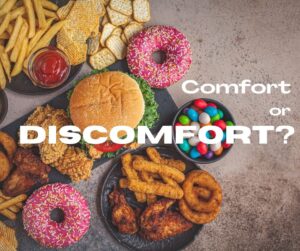Yesterday was Easter. As with most holidays and special occasions in our family, they are accompanied by gatherings. At these gatherings there definitely has come to be the traditional foods, that we in our family, have determined need to be there almost every time. The happiness and joy that comes from gathering and having these traditional foods start to form an association with each other. An association that most of us have come to know as “Comfort Foods”. If you look up the definition, you’ll see most center on the common thought that they are foods that bring us comfort because they associate us with the happy feelings of home, loved ones, and contentment. They make us feel better.
But do Comfort Foods always bring Comfort?
When we are feeling sad, depressed, anxious, stressed or even angry – our natural inclination is that we don’t want to feel these feelings. We start to have negative thoughts about the events and that brings on the uncomfortable feelings. “As we think, so we go” – we go seeking the comfort we are looking for, from our comfort foods. We want these foods to transform our uneasiness or pain and make us feel better. Often though the “feeling” only lasts temporarily and can ultimately bring discomfort in the following ways.
- You feel may feel bad physically after eating them: The foods we generally turn to for comfort are often high calorie, high fat, high sugar or high carb foods. First, you could tend to overeat them, eating them beyond fullness creating a stomachache or bloating. If you are prone to heartburn or IBS, these symptoms may soon follow.
- Your body systems may be negatively impacted: These types of foods can cause brain fog, especially if you have unknown sensitivities to certain foods. If the food is highly processed, the additives can also keep nutrients from being absorbed or contribute to slower brain function temporarily. If the food is high in sugar and/or carbohydrates you may experience blood sugar spikes and crashes contributing to headaches, shakiness, and a hard time focusing.
- You may have feelings of guilt: If you have assigned a value to foods, considering them “good” or “bad” based on their content and you are then eating the foods, you may then think of yourself as bad for eating them. Or if you have overindulged, you may feel guilty for allowing yourself to eat more than the amount you have prescribed for yourself to be “ok”.
What could you do instead?
Start with Telling Yourself the Truth
- The truth about the situation: When confronted by a triggering event, you can get caught up in the negative self-talk about the event which creates the emotion that makes you uneasy. “This day was the worst!” or “I’ll never shake this feeling of depression.” Challenge your thoughts, “Is it really the worst? Instead say, “I’ve just experienced some difficulties today, and I can figure them out” or “I’m resilient, I can bounce back, I’m just feeling a little down for right now.” Avoid “awfulizing” the event.
- The truth about the foods: Ask yourself, is the temporary benefit (feel better from eating) worth the physical consequences that may come – stomachache, bloating, sugar crashes. “Can I find another way to make myself feel better?” “Can I eat the food in moderation, allowing myself to eat just enough to enjoy?”
Do you find yourself turning to your comfort foods more often than not? Do you consider yourself an emotional eater? We can offer support and more tips through our private Facebook Group “THRIVE Beyond Emotional Eating” here: https://www.facebook.com/groups/171610998076305
No doubt, comfort foods can serve a purpose in our life. But when our comfort foods start causing too much discomfort, we have the power to make changes.



Follow Us